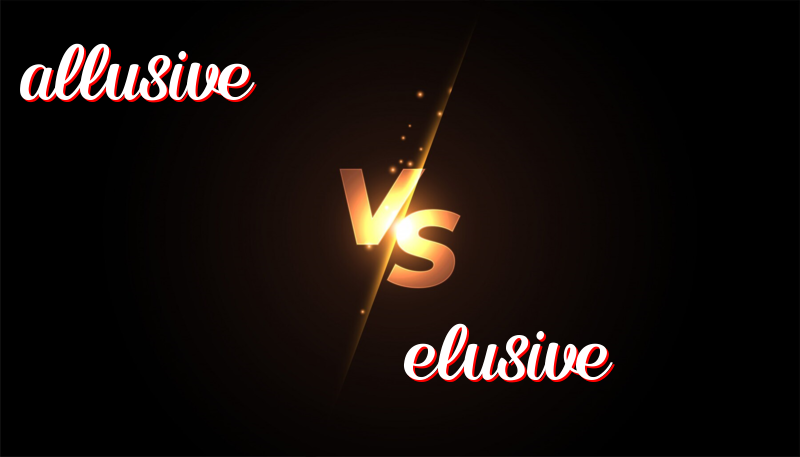英語單詞allusive 與 elusive的區別
October 23, 2024
Allusive 與 Elusive 之間的區別
詞源歷史
Allusive 這個詞源自於拉丁語 “alludere”,意思是“間接提到”或“暗指”。它經常出現在文學作品中,指的是對某事物的隱晦提及。
Elusive 則來自拉丁語“eludere”,意指“逃避”。這個詞通常用來描述難以捕捉或難以理解的事物。
使用方法
Allusive 用於描述含有間接提及或典故的語言或行文風格。
Elusive 用於描述難以捉摸或難以實現的事物,如想法或目標。
記憶技巧
- Allusive 和 allusion 有相似的拼寫,allusion 意思是暗指或典故,可以幫助記住 allusive 的意思。
- Elusive 開頭的 “e” 可以聯想到 “escape” (逃避),這樣可以幫助記住其意思是難以捉摸。
Allusive 的例句
- The book was highly allusive, filled with references to ancient mythology.
這本書充滿了對古代神話的暗指,非常具有暗示性。 - Her speech was allusive and required a deep understanding of history.
她的演講充滿暗示,需要深刻的歷史理解。 - His writing style is rich and allusive, often referencing famous literary works.
他的寫作風格豐富且充滿典故,經常引用著名的文學作品。 - The film was allusive, constantly hinting at the director’s previous works.
這部電影帶有暗示性,不斷暗示導演以前的作品。 - Artists often use allusive elements to engage their audience at a deeper level.
藝術家常常使用暗示性元素來與觀眾深入互動。
Elusive 的例句
- The solution to the mathematical problem proved to be elusive.
這道數學問題的解答證明是難以捉摸的。 - He found it elusive to spot the rare bird in the dense forest.
他發現要在濃密的森林中找到那隻稀有的鳥是很難的。 - Success in this competitive field can be very elusive.
在這個競爭激烈的領域中,成功可能是非常難以實現的。 - Despite numerous attempts, the criminal remained elusive to the police.
儘管多次嘗試,罪犯仍然讓警察無法捉摸。 - Her memories of that day were elusive, like a fading dream.
她對那天的記憶是模糊的,就像一個逐漸消逝的夢。
總結
Allusive 和 elusive 兩者雖然拼寫相似,但意義截然不同。Allusive 指的是間接提及或暗示,而 elusive 指的是難以捉摸或難以達成的對象。Understanding these distinctions can enhance both your reading comprehension and writing precision.

Leave a Reply
You must be logged in to post a comment.